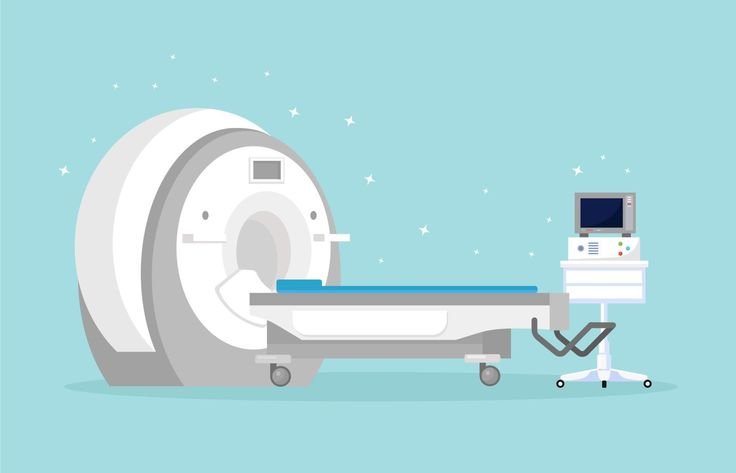Medical imaging has revolutionized the field of healthcare, with MRI (Magnetic Resonance Imaging) scans leading the way in providing detailed insights into the human body. Whether you’re dealing with a complex injury, a persistent health issue, or just seeking clarity for a medical condition, finding the right MRI scan near me is crucial. But how do you choose the best facility? This guide will help you understand the MRI process, what to expect, and what factors to consider when searching for the perfect MRI scan near you.
What is an MRI Scan?
MRI scans are advanced imaging tests that use magnetic fields and radio waves to create detailed images of the organs, tissues, and bones inside the body. Unlike X-rays or CT scans, MRIs don’t use ionizing radiation, making them a safer option for repeated imaging needs.
MRIs are particularly useful for diagnosing conditions affecting the brain, spine, joints, and soft tissues. They can detect abnormalities, injuries, or diseases that may not be visible on other imaging methods, providing doctors with critical information to guide treatment.
How Does an MRI Work?
MRI machines use a combination of strong magnets and radio waves to align the hydrogen atoms in your body. When these atoms return to their normal positions, they emit signals that are captured by the MRI scanner. These signals are processed by a computer to create detailed images of the internal structures of your body.
Types of MRI Scans
- Closed MRI: The traditional and most common type of MRI machine, where the patient lies down inside a tube-shaped machine.
- Open MRI: A more patient-friendly option for those with claustrophobia, open MRI machines are not fully enclosed, providing more comfort.
- Functional MRI (fMRI): This scan measures brain activity by detecting changes in blood flow.
- Magnetic Resonance Angiography (MRA): An MRI specifically designed to image blood vessels and help detect abnormalities in circulation.
Why You Might Need an MRI Scan
An MRI scan may be ordered by your doctor for a variety of reasons, ranging from diagnosing a specific injury to monitoring the progression of a disease. Some common reasons include:
- Brain Disorders: MRIs are commonly used to diagnose and monitor brain conditions such as tumors, multiple sclerosis, stroke, and aneurysms.
- Spinal Cord Injuries: MRIs provide a detailed view of spinal cord and nerve conditions, including disc herniation, spinal stenosis, and degenerative diseases.
- Joint Issues: An MRI is the go-to imaging method for assessing soft tissues around joints, including muscles, tendons, and cartilage.
- Cancer Detection: MRIs can detect tumors in various parts of the body, providing crucial insights into their size, location, and potential spread.
- Heart and Blood Vessel Conditions: MRAs, a specialized form of MRI, help in detecting cardiovascular conditions like blockages, aneurysms, and arterial diseases.
How to Find the Best MRI Scan Near You
Choosing the right MRI scan facility can be overwhelming, especially if you’re unfamiliar with medical imaging services. Here are some key factors to consider when selecting an MRI scan center near you:
1. Accreditation and Certifications
Always choose an MRI center that is accredited by reputable organizations, such as the American College of Radiology (ACR). Accreditation ensures that the facility meets high standards of safety, equipment quality, and staff qualifications.
2. Location and Accessibility
Convenience is key when choosing a medical facility. Look for MRI centers that are located near your home or workplace. Additionally, consider the center’s hours of operation, especially if you need a scan outside of traditional business hours.
3. Equipment Quality
Not all MRI machines are created equal. Ask about the type of MRI machines available at the center. Modern MRI machines provide higher-resolution images, which are crucial for accurate diagnoses. Open MRI machines, while more comfortable, may produce slightly lower-quality images than closed MRI systems.
4. Wait Times and Scheduling
MRI appointments can sometimes be difficult to schedule, especially at busy hospitals or clinics. Look for facilities with shorter wait times for appointments. If your condition requires immediate attention, find an MRI center that offers same-day or next-day scans.
5. Cost and Insurance Coverage
MRI scans can be expensive, but many facilities offer payment plans or accept a wide range of insurance providers. Contact your insurance company beforehand to confirm coverage. Be sure to ask the MRI facility about out-of-pocket costs or potential payment options if needed.
6. Comfort and Patient Experience
For those who suffer from anxiety or claustrophobia, an open MRI may be a more comfortable option. Some centers offer calming amenities such as noise-canceling headphones, soothing music, or even virtual reality glasses to help reduce stress during the scan.
7. Expert Radiologists and Technicians
The quality of the staff at an MRI center is crucial. Make sure the facility employs board-certified radiologists and experienced technicians. The more skilled the staff, the better the image interpretation, ensuring a more accurate diagnosis.
What to Expect During an MRI Scan
Many people feel anxious about their first MRI scan, but knowing what to expect can help ease your concerns. Here’s a step-by-step breakdown of the MRI process:
- Preparation: You’ll be asked to remove any metal objects, such as jewelry, glasses, or belts, as the magnetic field can interfere with these items. In some cases, you may be given a hospital gown to wear.
- Positioning: You’ll lie down on a cushioned table that slides into the MRI machine. Depending on the body part being scanned, the machine will either fully or partially enclose you.
- Staying Still: During the scan, it’s important to remain still, as movement can blur the images. The MRI machine makes loud thumping or tapping noises as it works, but earplugs or headphones are often provided for comfort.
- Duration: The scan can take anywhere from 20 minutes to an hour, depending on the area being examined.
- After the Scan: Once the scan is complete, a radiologist will interpret the images and send a report to your doctor. You can typically resume your normal activities immediately after the scan.
Conclusion
An MRI scan is an invaluable tool for diagnosing and managing a wide range of medical conditions. Whether you’re searching for the best MRI center near you or preparing for your first scan, knowing what to expect can help make the process smoother and less stressful. By considering factors like accreditation, equipment quality, location, and patient experience, you can find the perfect MRI scan near you for accurate and reliable results.
FAQs
1. Is an MRI scan safe?
Yes, MRI scans are generally safe and do not involve radiation. However, patients with certain implants, such as pacemakers, may need to take special precautions or choose alternative imaging methods.
2. How long does an MRI scan take?
Most MRI scans take between 20 minutes and an hour, depending on the area being examined and the type of scan being performed.
3. Can I eat before an MRI scan?
For most MRI scans, you can eat and drink normally beforehand. However, if you’re getting an MRI with contrast, your doctor may recommend fasting for a few hours before the test.
4. Will I feel claustrophobic in the MRI machine?
Some people may feel claustrophobic in a traditional closed MRI machine. If this is a concern, you can inquire about open MRI options or request calming aids such as headphones or sedatives.
5. How soon will I get my MRI results?
It usually takes a radiologist 24 to 48 hours to review the images and send a report to your doctor. Your doctor will then discuss the results with you.


